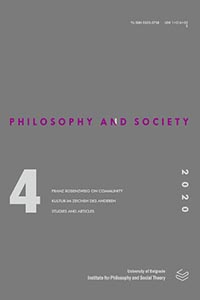The Advantages of Neomoorean Antiskeptical Strategy
The Advantages of Neomoorean Antiskeptical Strategy
Author(s): Jelena MijićSubject(s): Philosophy
Published by: Institut za filozofiju i društvenu teoriju
Keywords: knowledge; skepticism; sensitivity principle; externalism
Summary/Abstract: This paper aims to argue in support of the neo-Moorean attempt(s) to solve a skeptical paradox. It defends the thesis that neo-Mooreans retain advantages and avoid disadvantages of rival anti-skeptical strategies – namely epistemic contextualism. The puzzle that a radical skeptic poses is exemplified by Nozick’s famous Brain in a Vat thought experiment, which enables construing valid arguments consisting of jointly inconsistent but independently plausible premises. The first and the second part of the paper are devoted to Nozick’s conditional analysis of knowledge and De Rose’s epistemic contextualism, both based on the sensitivity principle. Referring to De Roses’ contextualist theory, we demonstrate that the failure of Nozick’s conditional analysis of knowledge to provide a satisfactory answer to a skeptical paradox does not concern the sensitivity principle but rather closure denial and embracing the so-called “abominable conjunction”. In the third part, we point out the weaknesses of the presumably most successful, contextualist response to the paradox. We explain that even though DeRose’s anti-skeptical strategy is built upon Nozick’s theory, he successfully surmounts its difficulties. Yet it seems that as a contextualist, he necessarily makes some concessions to a radical skeptic. Eventually, the article introduces Black’s neo-Moorean anti-skeptical theory based on the sensitivity principle as a strategy that makes neither concessions, nor counterintuitive proposals.
Journal: Filozofija i društvo
- Issue Year: 31/2020
- Issue No: 4
- Page Range: 613-628
- Page Count: 16
- Language: English

